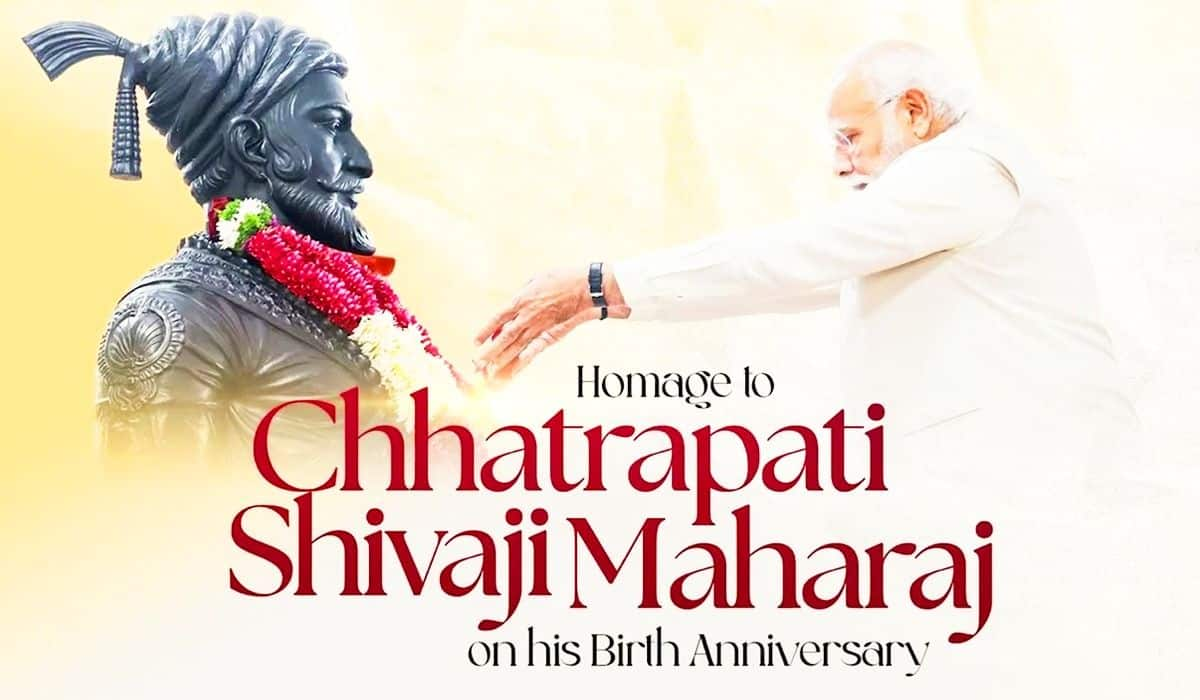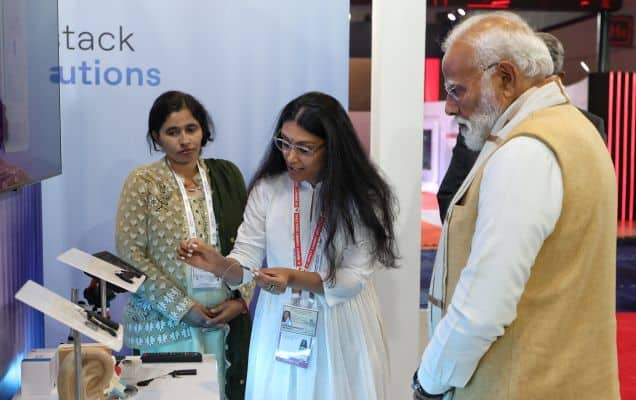The Prime Minister Shri Narendra Modi interacted with the Indian contingent bound for the Commonwealth Games (CWG) 2022 today via video conferencing. The interaction was attended by both athletes as well as their coaches. Union Minister for Youth Affairs & Sports and Information & Broadcasting Shri Anurag Singh Thakur and Secretary for Sports were also present.
The Prime Minister wished the Indian contingent for Commonwealth Games on International Chess day. The Chess Olympiad is also taking place from 28 July in Tamil Nadu. He wished them for making India proud, as their predecessors did before. He informed that more than 65 athletes are participating in Commonwealth for the first time and he wished them to make a tremendous impact. He advised them to “play with all your heart, play hard, play with full force and will play without any stress”.
During the interaction, the Prime Minister enquired from Shri Avinash Sable, an athlete from Maharashtra, about his life experience of coming from Maharashtra and working in the Indian Army in Siachen. He said that he got to learn a lot from his 4 years stint in the Indian Army. He said that discipline and training he received from the Indian Army would help him shine in whichever field he would go. The PM asked him why he chose the steeplechase field while working in Siachen. He said steeplechase is all about crossing obstacles and he received similar training in the Army. The PM asked about his experience of losing weight so fast. He said that the Army motivated him to join sports and he got extra time to train himself and this helped in losing weight.
The Prime Minister further went on to speak with Achinta Sheuli, a weightlifter in the 73 kg category who hails from West Bengal and asked him how he manages to strike a balance between his peaceful nature and the power of weightlifting in his sport. Achinta said that he has a regular yoga routine that helps him calm the mind. The PM asked him about his family to which Achinta replied that he has his mother and elder brother who support him through all the highs and lows. The Prime Minister also enquired about how he deals with the injury issues that come with the sport. Achinta replied that injuries are a part of the game and that he nurses them very carefully. He further added that he analyses his mistakes that led to the injury and makes sure that they are not repeated in the future. The Prime Minister wished him good luck for his endeavours and also praised his family, especially his mother and brother for making sure that all needs of Achinta were met that got him where he is today.
The Prime Minister interacted with Ms Treesa Jolly, a badminton player from Kerala. PM enquired how she chose badminton when Kannur where she comes from is popular for football and farming. She said that her father motivated her to take the sport. PM enquired about her friendship with Gayathri Gopichand and partnership on field. She informed that a good friendship bond with her field partner helps in her sport. The PM also asked about her plans for celebration while coming back.
The Prime Minister interacted with Ms Salima Tete, a hockey player from Jharkhand. The PM asked about the journey of her and her father in the field of hockey. She said that she was inspired seeing her father play hockey. The PM asked to share her experience of playing in Tokyo Olympics. She said that she was motivated by the interaction she had with the PM before going to Tokyo.
The Prime Minister interacted with Sharmila, a para athlete in shotput from Haryana. The PM asked her about her inspiration to start a career in sport at the age of 34 and also grabbing a gold medal in only two years time. Sharmila said that she has had an interest in sports since childhood but due to the family’s financial condition she was married at an early age, and had to face atrocities at the hands of her husband. She and her two daughters had to fall back on her parents for six years. Her relative Tekchand Bhai, who was a flag bearer supported her and trained her for vigorously for eight hours a day. The PM went on to ask about her daughters and said that she is a role model for the entire nation and not just for her daughters. Sharmila further added that she wanted her daughter to join sports and contribute to the nation. The PM also enquired about her coach Tekchand Ji who is a former paralympian to which Sharmila replied that he has been her inspiration throughout her career. It was his dedication towards Sharmila’s training that got her to compete in sports. The Prime Minister remarked that others would have given up at the age at which she started her career and then congratulated her for her success and wished her good luck for the Commonwealth Games.
The Prime Minister interacted with Shri David Beckham, a cyclist from Andaman and Nicobar. PM asked whether he had passion for football as he shares the name of a legendary footballer. He said that he had passion for football but the infrastructure in Andaman didn’t allow him to pursue the sport. PM asked how he remained motivated to pursue this sport for so long. He said that people around him motivated a lot. PM asked how Khelo India helped him. He said that his journey started with Khelo India and PM speaking about him in Mann ki Baat motivated him further. PM praised him for staying motivated even after loss of his father to Tsunami and lose of his mother too soon after.
Addressing the sportspersons after the interaction, the Prime Minister said that he was not able to meet them in person due to him being preoccupied with Parliament despite wanting to do so. He promised them that he would meet them when they come back and their victory can be celebrated together.
The Prime Minister said the current period is in a way the most important period in the history of Indian sports. Today, the spirit of players is also high, the training too is getting better and the atmosphere in the country towards sports is also tremendous. All of you are climbing new peaks, making new peaks, he said.
To those who are entering the big international arena for the first time, the Prime Minister said that only the arena has changed but not the spirit and stubbornness for success. “The goal is to see the tricolor fluttering, to hear the national anthem being played. That's why don't take pressure, make an impact with a good and strong game”, he added.
The Prime Minister remarked that the athletes are going to the Commonwealth Games at a time when the country is celebrating 75 years of independence and that the athletes will showcase their best performance which will be a gift for the country. It should not matter who the adversary is. The PM said that all the athletes have trained well and with the best facilities in the world and urged them to remember the training and rely on the will power. The Prime Minister further said that what the athletes have achieved is definitely inspiring but they should now aim to create new records and give their best for the country and countrymen.
The interaction by the Prime Minister is a part of his continuous endeavour to motivate athletes ahead of their participation in major sporting events. Last year, Prime Minister interacted with the Indian athletes’ contingent bound for the Tokyo 2020 Olympics and the Indian para-athletes’ contingent for the Tokyo 2020 Paralympic Games.
Even during the sporting events, Prime Minister took a keen interest in the athletes' progress. On many occasions, he personally rang up athletes to congratulate them on their success and sincere efforts, while motivating them to do better. Further, upon their return to the country, the Prime Minister also met and interacted with the contingent.
The CWG 2022 is scheduled to be held in Birmingham from 28th July till 08th August 2022. A total of 215 athletes, participating in 141 events across 19 sporting disciplines, will represent India in the CWG 2022.
मैं बस यही कहूंगा कि जी भर के खेलिएगा, जमकर खेलिएगा, पूरी ताकत से खेलिएगा और बिना किसी टेंशन के खेलिएगा: PM @narendramodi
— PMO India (@PMOIndia) July 20, 2022
जो 65 से ज्यादा एथलीट पहली बार इस टूर्नामेंट में हिस्सा ले रहे हैं, मुझे विश्वास है कि वो भी अपनी जबरदस्त छाप छोड़ेंगे।
— PMO India (@PMOIndia) July 20, 2022
आप लोगों को क्या करना है, कैसे खेलना है, इसके आप एक्सपर्ट हैं: PM @narendramodi to Indian contingent bound for @birminghamcg22
आज का ये समय भारतीय खेलों के इतिहास का एक तरह से सबसे महत्वपूर्ण कालखंड है।
— PMO India (@PMOIndia) July 20, 2022
आज आप जैसे खिलाड़ियों का हौसला भी बुलंद है, ट्रेनिंग भी बेहतर हो रही है और खेल के प्रति देश में माहौल भी जबरदस्त है।
आप सभी नए शिखर चढ़ रहे हैं, नए शिखर गढ़ रहे हैं: PM @narendramodi
जो पहली बार बड़े अंतरराष्ट्रीय मैदान पर उतर रहे हैं, उनसे मैं कहूंगा कि मैदान बदला है, आपका मिजाज़ नहीं, आपकी जिद नहीं।
— PMO India (@PMOIndia) July 20, 2022
लक्ष्य वही है कि तिरंगे को लहराता देखना है, राष्ट्रगान की धुन को बजते सुनना है।
इसलिए दबाव नहीं लेना है, अच्छे और दमदार खेल से प्रभाव छोड़ना है: PM













